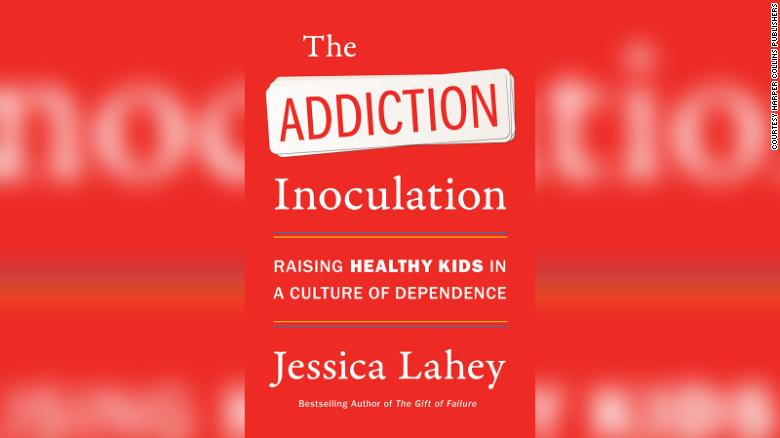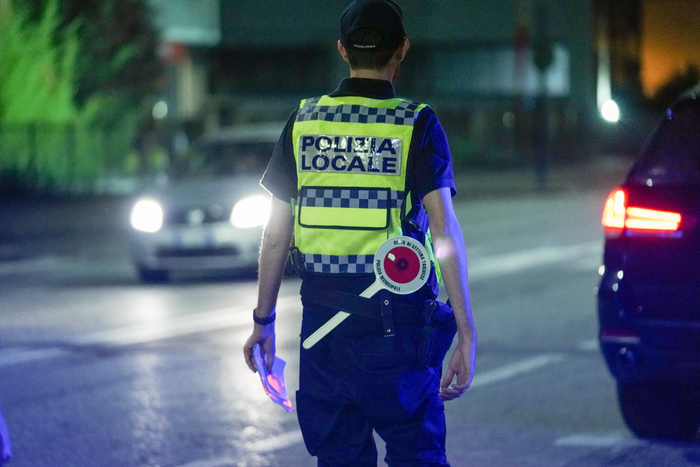Study: Increase in drug and alcohol abuse 1:25
(CNN) -
As flexible as today's parents are compared to previous generations, there are still a number of uncomfortable topics: alcohol and drug use, for example.
Marijuana abuse by youth with mood disorders is associated with suicide attempts, self-harm and death, study finds
It is certainly easier –– and often more attractive–– for some parents to turn a blind eye.
Everyone has had beer and smoked marijuana.
That is part of growing up, especially for parents who grew up with access to many different substances.
Certain?
But this is not necessarily the case.
In her new book
The Addiction Inoculation: Raising Healthy Kids in a Culture of Dependence
, Jessica Lahey discusses the risks of substance abuse in minors.
Also, what parents can do to prevent it.
CNN spoke with Lahey about why the adolescent brain is especially vulnerable to alcohol and drugs.
Also about how parents, caregivers, and other adults with children in their lives can help rapidly growing minors make better decisions about alcohol and drug use.
Additionally, he shared how his own sobriety inspired the book.
advertising
This conversation has been edited and condensed for clarity.
Addiction is personal to you.
How did that come into the picture when writing this book on minors and substance abuse?
It was scary because I'm not the only one with a substance use disorder - so do much of my extended family.
But, I completely believe that the more I talk about what I've been through, the easier it is for other people to talk about their experiences.
The more I talk about it, the more I can erase the stigma of what it is.
It wasn't until I recovered that I realized that almost anyone you know can be an alcoholic.
There are many perfectionists who deal with their anxiety with alcohol.
How does the adolescent brain develop in a way that makes them more vulnerable to alcohol and drug addiction?
The adolescent brain is in a process of development and transformation.
And it is not completed until young people are in their early 20s.
Adolescents are not programmed for addiction, but they are programmed to take risks.
Their initial levels of dopamine (a type of neurotransmitter associated with pleasure) are lower than those of children or adults.
Drugs and alcohol became a path to novelty and risk, to feel something.
They study dangers of cannabis in young people with disorders 0:57
It is also more harmful to them, why?
Mainly because there is a lot of development going on, and once the damage happens, you can't go back and fix things.
There are receptors in the brain that are critical for learning, memory and emotions that are refined during the adolescent period.
You write about how addiction prevention starts from an early age.
What are some of the suggestions for young children?
As with sex, there is no one-time conversation about drugs or alcohol.
With young children, the best prevention is social and emotional learning in schools.
It is also good for parents to discuss medications in their cabinet.
For example, in the case of my home, why does Mom and not Dad take it?
It's having conversations about our health and what we put into our bodies from a young age.
In elementary school, be careful what you say to your children.
"I've had such a difficult day, I need a drink to relax."
We use this language with children and, boy, do they listen to us.
And they do what we do and not what we say.
When they see us using alcohol and drugs to deal with sadness or emotions, they get the message that that's what alcohol and drugs are for.
This seems especially important in the pandemic, when many parents and children struggle with stress, anxiety, depression, or all three.
Surveys show that adults have drunk much more alcohol during this pandemic.
And our kids see the way we use drugs, alcohol, and food, for that matter.
Again, I'm not saying we can't drink, do drugs, or eat cookies.
What I'm saying is that when we show our children that these things are a valid way to mask or numb our feelings, they are much more likely to do the same.
As a side note, I say this as a woman coming out of this pandemic with 4.5 kilos more.
Alcohol consumption has exploded during the pandemic, how to identify an addiction problem?
How do you talk to teens about alcohol and drugs?
Turn it into a talk about how (the products) are marketed.
Teens hate being manipulated.
"Do you think drinking that beer will make you beautiful and slim?"
In general, what teens want from us is honesty, real information, and evidence.
When we use scare tactics, they just don't believe us.
We need to inform them about how their brains develop, their risk factor, and give them refusal skills.
The best we can do is give them as much information as possible.
How is this situation handled at home?
At first, I completely believed in the idea that in order to raise moderate drinkers, I should be more European and let my kids sip at home.
Turns out this doesn't work.
Not only because, despite what we think, the European Union is, according to the World Health Organization, "the region where the most alcohol is drunk in the world."
But also because children with parents who have a clear and consistent abstinence message until alcohol use is legal are much less likely to develop a substance use disorder.
If we make them reach the age of 18, this will protect their brains and prevent them from being at risk for a substance use disorder for their entire lives.
In our house, we have a clear message: you cannot drink until you are 21 years old.
What about the college years?
At first I didn't know if I would write a chapter about college days.
We thought of drinking as an inevitable part of the college experience, and I believed I was just wasting effort.
But I found that the number of young people who drink during college is less than I thought.
It is a very small group that is responsible for most of the alcohol consumption on campus.
Schools are increasingly recognizing the importance of non-alcoholic alternatives.
Young people tend to have a misperception, an overestimate to be specific, of how much other college students drink, as well as how much alcohol matters to them.
They then increase their own alcohol consumption to match their incorrect beliefs about how much other students drink.
If you could have a magic wand and change one thing right now about college and alcohol, what would it be?
I would love for colleges to be more supportive of kids who don't drink or choose to drink from time to time.
I am not anti-alcohol or anti-drug.
I am only in favor of protecting the brains of adolescents and keeping children and young people safe.
If our expectations change, they will live up to those expectations.
Elissa Strauss is a regular contributor to CNN, where she writes on the politics and culture of motherhood.
AddictionsAlcohol









